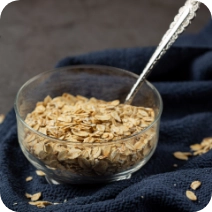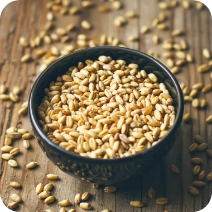Oat
Oats (Avena) are a valuable agricultural crop known for their starch-rich grains, widely used in both animal feed and human nutrition. Although cultivated in smaller quantities compared to other cereals like wheat, barley, and corn, oats are strategically important due to their high nutritional value.
Oats stand out particularly for their richness in protein, vitamins, and minerals. Their high content of soluble fiber—especially beta-glucan—makes them an excellent source of digestible and energizing nutrition for both animals and humans. Crushed or rolled oats are commonly included in the feed rations of cattle and sheep, while the leaves and stalks are also utilized as roughage. This versatile use makes oats an indispensable feed ingredient.
In human nutrition, oats are known for their health benefits such as lowering cholesterol, regulating digestion, and balancing blood sugar levels. As a result, oats have become a preferred dietary choice for individuals pursuing a healthy lifestyle. Thanks to their natural and unprocessed qualities, oats offer a clean and additive-free food alternative.
Globally, oat production ranges between 22 to 25 million tons annually. In Turkey, production volume stands at approximately 250,000 to 350,000 tons per year. These figures indicate significant potential for the expansion and diversification of oat usage.
Nutritional Value of Oats (per 100 grams):
Calories: ~389 kcal
Carbohydrates: 66.3 g
Fiber: 10.6 g (mostly soluble fiber, especially beta-glucan)
Protein (min): 10.0 g




